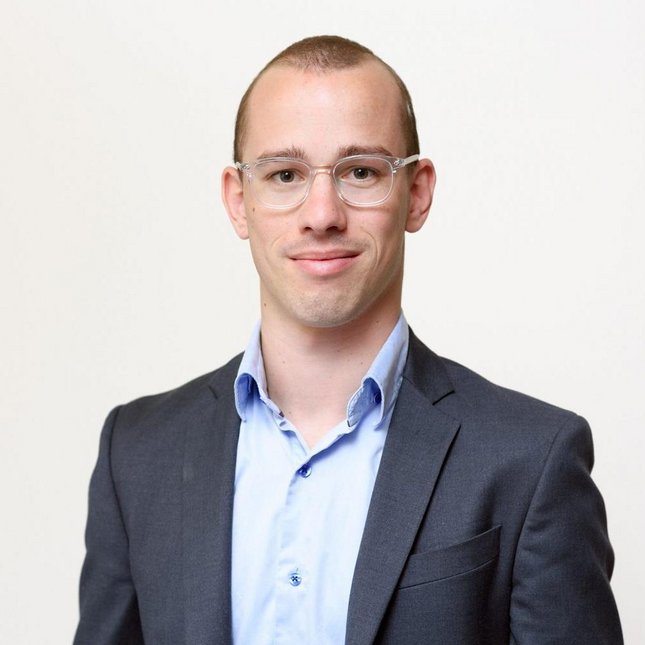
After studying Computer Science & Engineering at TU/e, Edwin spent a few years working at an IT company. In 2015 he became an entrepreneur by co-founding MedApp, a start-up that aims to improve medication users’ quality of life. The core of this business is an app that can be used to set alerts for taking medication, to create medication overviews and to have medication delivered.
The app also contains information and expert knowledge on medication. With tens of thousands of users, MedApp is growing at an incredible rate.
Reason for donating
Donating to the fund during the Heroes for Heroes campaign was a no-brainer for Edwin. He let his heart speak, he says: “I have very fond memories of TU/e. I owe a lot to the institution and I had a great time there. And I am a strong advocate of good-quality research that helps make the world a better place.”
He goes on to give an example: “If I had Elon Musk’s billions, I’d think of something better to do than buy Twitter. I would invest in fundamental research in such areas as nuclear energy and fusion. These are things that can help us live cleaner lives. We know fusion is possible, but the main question is how to use it in practice. The research budget Europe set aside to answer this question is a mere 5 billion. This may sound like a lot, but it’s peanuts if you consider what kind of sums are actually required. And it pales in comparison to what was spent on mitigating the COVID pandemic. Granted, that was a more pressing problem to solve, but climate change will do a lot more damage in the long run.”
Studying+
Edwin started out at TU/e like a typical student: “An eighteen-year-old who wanted to enjoy himself rather than spend time on his studies.” He wasn’t the only one: lots of people around him dropped out. “But after two years I started to do more things next to my studies. I was on the board of the study association, I went on study trips and joined the participation council. Especially at the association I had a lot of tasks, because some people there dropped out. But somehow, being that busy actually helped me focus on my studies.”
The extracurricular activities taught him a number of skills that still come in handy today. Or, rather, that are essential today. “At TU/e you’re sure to learn the theory and practical applications of your field, but managing a company also requires skills that you don’t pick up from lectures or books.”
New generation
Edwin was able to build his company on the knowledge he acquired at TU/e, as well as the experience gained from other activities. It’s no surprise, therefore, that he advises current students to find something to do outside their studies: “I was on a board back then, but nowadays the campus has all kinds of teams that develop technologies and products. Lightyear is a great example of an initiative that started at our university. So if you’re a student now, join one of those teams. You’ll put your knowledge into practice and develop new skills, including the social ones that will prove invaluable later on.”
Bookkeeping
The other things he needed to know in his new role as co-founder of a company he mostly learnt on the job. Sometimes he had to feel his way through it. Edwin: “Take bookkeeping. You want to know what’s going on, but you don’t have to draw up a balance sheet yourself. Luckily, I had done a minor in entrepreneurship, so I did have some knowledge of the subject. Although in retrospect I would have liked to have even more, so my advice would be: pay attention in those kinds of classes as well. When you’re twenty you may think you’ll never be an entrepreneur, but sometimes an opportunity will present itself that just can’t be ignored.”
Thinking in concepts
A downside of Edwin’s leader role is that he doesn’t really get hands-on with projects anymore. Edwin: “Sometimes I would like to delve a bit deeper into the architecture of systems, for instance. On campus it was theory, now it’s daily practice. But my knowledge isn’t always up to date, so others end up doing what I studied for. It’s part of my position. Luckily, my studies also taught me to think conceptually, so I can help create and monitor the big picture. Those are skills you just can’t put a price on.”